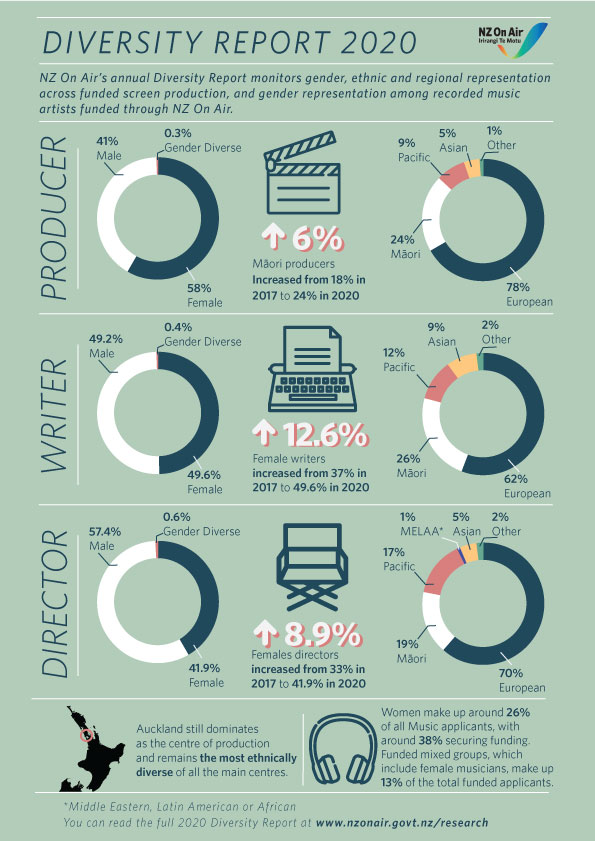NZ On Air’s Diversity Report 2020 Shows Ongoing Imbalances
NZ On Air’s Diversity Report 2020 Shows Ongoing Imbalances
NZ On Air’s Diversity Report 2020 monitors gender, ethnic and regional representation across funded screen productions, and gender representation among recorded music artists through NZ On Air.

NZ On Air has now gathered five years of comparable data from funded Scripted and Factual content, and funded music, allowing the organisation to report on trends and data shifts in certain areas of the NZ On Air funded production and music sectors. The 2020 Diversity Report shows women are well-represented among writers and producers in screen content, but still battling for their place as directors, and the report shows a lack of Asian screen creatives in all creative roles.
While improving, the number of female music artists funded remains significantly lower than male artists – though roughly in line with the percentages making application which in 2019/20 was 65% male and 26% female (for singles). Those figures, as the report notes, are reflective of the APRA AMCOS NZ membership numbers – just under 25% being female artists.
Including data up to March 2020, within New Music Single funding rounds women make up 20-30% of all funding applicants, with roughly 38% of those female applicants lately receiving funding. In New Music Project funding rounds the story is similar, though the percentage of projects considered ‘female’ has actually dipped over the time.
‘For the purpose of this report music funding applicants were split into three categories based on the gender of the main creative force (singer/writer) behind each work: female, male, or ‘mixed’, where both men and women shared key vocal and song writing roles. As shown by the data that follows, 20-30% of music funding applicants are female artists, 60-70% are male artists, and 5-10% are mixed. These yearly trends were mirrored at the more micro level of individual funding rounds (four or five per year per funding scheme).’
NZ On Air CEO Cameron Harland says it’s clear that some targeted interventions could help change the diversity of the screen and music sectors.
“There are a number of ways through development and mentoring in particular that we can help to encourage change. We will continue to work with the screen and music industries to support initiatives that give more opportunities to under-represented groups.”
